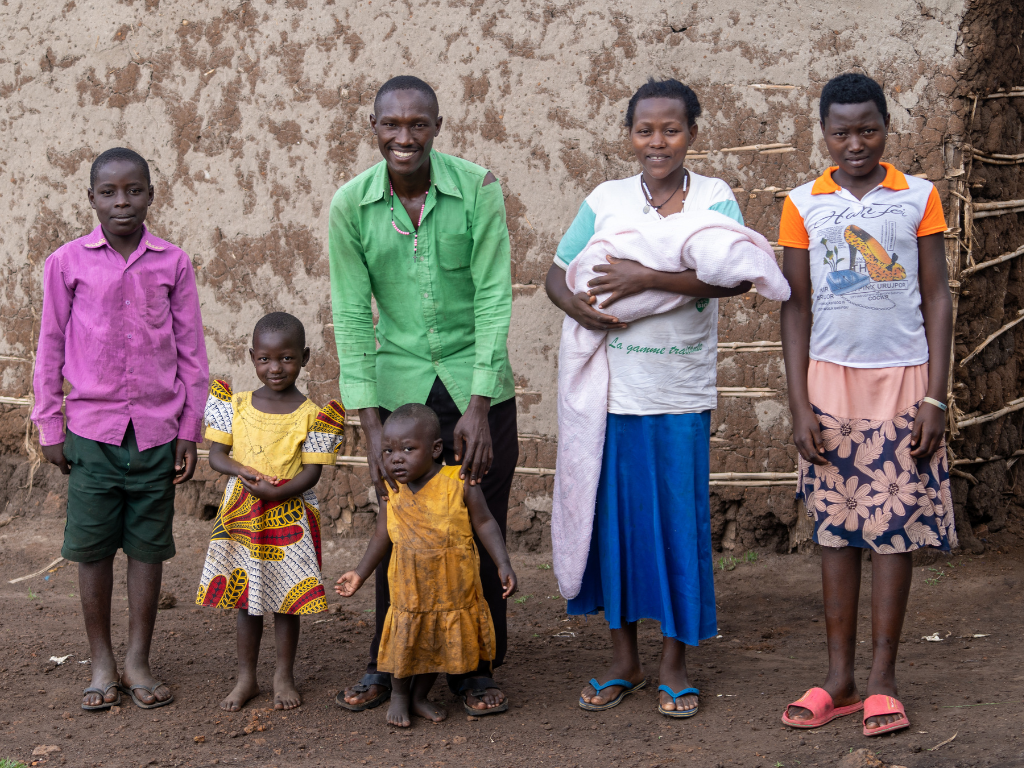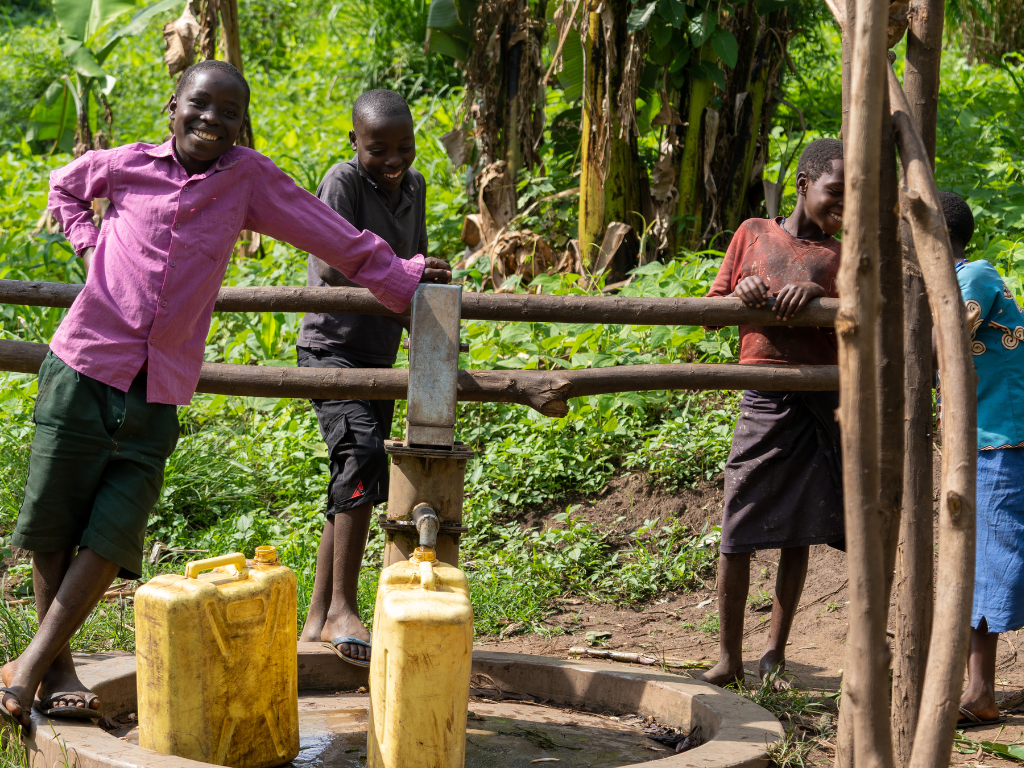Strengthening Agriculture Today for Better Results Tomorrow

“I harvested 900 kgs of Maize from 3kgs seeds I received from Raising The Village. With the money brought in by selling it, I was able to buy additional farmland,” beams Alex, a parent of 5. But, hailing from an isolated last-mile village in western Uganda, the situation was quite different for Alex and his community until recently.
Alex’s village, Ruyanja, largely depends on farming for subsistence and income and comprises small landholders. But lack of access to good seeds, tools, and modern farming knowledge often resulted in low yields, high food insecurity, and lower incomes. In addition, pests and diseases have been a significant challenge, often forcing farmers to invest in expensive chemical pesticides. This led to high costs and meagre savings that would otherwise be used for education, health, and other necessities. Alex wanted his children to go to school and save money to construct a better house.
In July 2021, the community of Ruyanja partnered with Raising The Village for 24 months to address these challenges. Alex and the community members received extensive training on Good Agronomic Practices (GAP) covering various farming stages. These include preparation, production, post-harvest crop management, and cost-effective practices such as preparing organic pesticides from locally sourced materials. Quality inputs, including improved seeds and agricultural tools, were also received as part of the program. Significant barriers to scarcity, such as the unavailability of clean drinking water and nutritious vegetables for consumption, were also sustainably addressed so community members could improve their health, save time, and actively participate in agricultural programs.

Alex and the community members received financial literacy training and soon formed a Village Savings and Loan Association (VSLA) to manage income better and leverage their savings. Through the VSLA, the community of Ruyanja now funds its members’ business and farming initiatives. “Being a last-mile community, we barely have access to financial services. We didn’t know the power of a saving group until we were trained in financial literacy by Raising The Village.”
With increased household income, Alex can send his children to school, while some community members have bought livestock to diversify their earnings. “I plan to save enough money to construct a house, buy cows and a motorcycle,” says Alex.
Be part of our journey. Support last-mile communities by supporting Raising The Village.
Let’s Stay Connected

